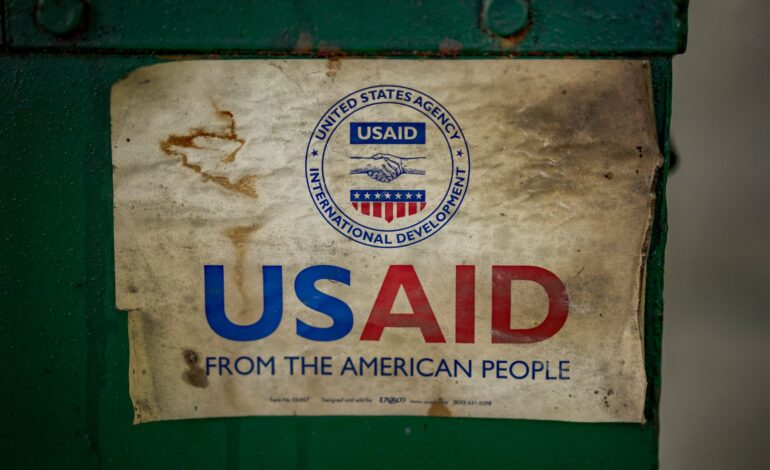Trump’s Cuts to USAID Undermine Global Health Initiatives

The Trump administration’s cuts to the United States Agency for International Development (USAID) have significantly compromised global health initiatives, raising concerns about America’s role on the international stage. Critics argue that this approach not only endangers lives abroad but also diminishes the country’s global influence.
Historical Context of American Soft Power
The concept of soft power, which refers to the ability to influence others through attraction and persuasion rather than coercion, has been a cornerstone of American foreign policy. George C. Marshall, a key figure during World War II, exemplified this through the Marshall Plan, which helped rebuild Western Europe and secured it against Soviet influence. Marshall’s vision, supported by President Harry Truman, set a precedent for American diplomacy that emphasized humanitarian aid and economic support.
In more recent times, Jim Mattis, a former U.S. Secretary of Defense, echoed this sentiment, stating, “If you don’t fund the State Department fully, then I have to buy more ammunition.” This underscores the importance of diplomacy in maintaining global stability.
USAID, a legacy of the Marshall Plan, has historically played a vital role in projecting American values and support around the world. Its dismantlement risks a significant loss of influence and credibility for the United States.
The Impact of USAID Cuts on Global Health
The Trump administration’s approach to USAID began with intentions to streamline its operations. However, what started as layoffs evolved into a drastic reduction in the agency’s capacity. By February 2025, funding for essential health programs in countries like Zambia plummeted from $409 million in 2024 to approximately $61.6 million, a staggering decrease of 85%. More than half of this funding was allocated to combatting HIV/AIDS, a critical health issue in the region.
Critics highlight that the reductions in aid are not merely bureaucratic adjustments but have dire humanitarian consequences. As noted by health experts, the previous ten-year average for USAID’s program in Zambia amounted to $147.7 million. The cuts jeopardize the lives of mothers and children reliant on these programs for life-saving therapies.
In addition to HIV/AIDS, the funding reductions extend to other critical health initiatives. The fight against malaria in Zambia, where U.S. funding constituted about a third of anti-malarial efforts, also faces severe threats. If funding is cut, the progress made in reducing infection rates will likely be reversed, resulting in more deaths.
The consequences of these cuts are already visible. Reports from reputable sources such as The New York Times and The Washington Post have documented the adverse impacts on communities that once depended on U.S. aid for essential health services.
The Trump administration’s narrative, which often focused on alleged misuse of funds, overlooked the vital role that USAID has played in promoting stability and health improvements across the globe. For instance, the initial claim regarding a blocked $50 million grant for condom distribution in Gaza was later clarified to refer to a region in Mozambique, illustrating a significant misunderstanding of the agency’s mission.
The implications of USAID’s decline extend beyond international borders. The cuts to its budget have also affected domestic research programs, particularly at the National Institutes of Health (NIH), which has seen terminations of funding for numerous clinical trials. This has put thousands of patients at risk, with many losing access to critical therapies.
In a globalized world, the notion of “America First” can lead to isolation rather than strength. As nations perceive the U.S. as retreating from its commitments, they may turn towards other powers for support, potentially reshaping global alliances and reducing American influence.
The dismantling of USAID signifies a broader trend of neglecting humanitarian responsibilities, which could yield long-term consequences not only for global health but also for America’s standing in the international community. The challenge remains for future leaders to recognize the importance of soft power and to invest in the global health initiatives that once defined American diplomacy.






